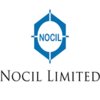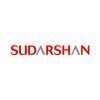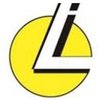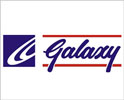Filter interviews by
Privi Organics Processing Executive Interview Questions and Answers
Privi Organics Processing Executive Interview Experiences
1 interview found
30 min
(1 Question)
- Q1. Process knowledge, it was about educational background. how it is related to company
Interview Preparation Tips
Top trending discussions






Interview questions from similar companies

Processing Executive Interview Questions & Answers
Eternis Fine Chemicalsposted on 19 Oct 2024
Aptitude test with analytical skills required
(5 Questions)
- Q1. What is distillation
- Ans.
Distillation is a process of separating components of a liquid mixture based on differences in boiling points.
Distillation involves heating the liquid mixture to create vapor, then cooling the vapor to collect the separated components.
The component with the lower boiling point will vaporize first and be collected, leaving behind the component with the higher boiling point.
Examples of distillation include the separation...
- Q2. Where we use vacuum distillation
- Ans.
Vacuum distillation is used in industries such as petrochemical, pharmaceutical, and food processing to separate components with high boiling points.
Used in petrochemical industry to separate high boiling point components like lubricating oils and waxes
Utilized in pharmaceutical industry to purify chemicals and separate compounds with similar boiling points
Commonly used in food processing to extract flavors and fragran...
- Q3. What is adsorption
- Ans.
Adsorption is the process in which molecules or particles adhere to the surface of a solid or liquid material.
Adsorption involves the accumulation of molecules or particles on the surface of a material.
It is a surface phenomenon, different from absorption where a substance is taken into the bulk of another material.
Examples include the adsorption of pollutants onto activated carbon in water treatment processes.
- Q4. What are different types of separation methods
- Ans.
Different types of separation methods include filtration, distillation, chromatography, and centrifugation.
Filtration: Separates solids from liquids or gases using a porous material.
Distillation: Separates components based on differences in boiling points.
Chromatography: Separates components based on their affinity for a stationary phase.
Centrifugation: Separates components based on differences in density and size.
- Q5. What projects have you done in M.Tech
- Ans.
I have worked on projects related to machine learning, data analysis, and optimization algorithms during my M.Tech.
Developed a machine learning model to predict customer churn in a telecom company
Implemented data analysis techniques to identify patterns in stock market data
Optimized scheduling algorithms for a manufacturing plant to minimize downtime

Processing Executive Interview Questions & Answers
Eternis Fine Chemicalsposted on 19 Oct 2024
Aptitude test with analytical skills required
(5 Questions)
- Q1. What is distillation
- Ans.
Distillation is a process of separating components of a liquid mixture based on differences in boiling points.
Distillation involves heating the liquid mixture to create vapor, then cooling the vapor to collect the separated components.
The component with the lower boiling point will vaporize first and be collected, leaving behind the component with the higher boiling point.
Examples of distillation include the separation...
- Q2. Where we use vacuum distillation
- Ans.
Vacuum distillation is used in industries such as petrochemical, pharmaceutical, and food processing to separate components with high boiling points.
Used in petrochemical industry to separate high boiling point components like lubricating oils and waxes
Utilized in pharmaceutical industry to purify chemicals and separate compounds with similar boiling points
Commonly used in food processing to extract flavors and fragran...
- Q3. What is adsorption
- Ans.
Adsorption is the process in which molecules or particles adhere to the surface of a solid or liquid material.
Adsorption involves the accumulation of molecules or particles on the surface of a material.
It is a surface phenomenon, different from absorption where a substance is taken into the bulk of another material.
Examples include the adsorption of pollutants onto activated carbon in water treatment processes.
- Q4. What are different types of separation methods
- Ans.
Different types of separation methods include filtration, distillation, chromatography, and centrifugation.
Filtration: Separates solids from liquids or gases using a porous material.
Distillation: Separates components based on differences in boiling points.
Chromatography: Separates components based on their affinity for a stationary phase.
Centrifugation: Separates components based on differences in density and size.
- Q5. What projects have you done in M.Tech
- Ans.
I have worked on projects related to machine learning, data analysis, and optimization algorithms during my M.Tech.
Developed a machine learning model to predict customer churn in a telecom company
Implemented data analysis techniques to identify patterns in stock market data
Optimized scheduling algorithms for a manufacturing plant to minimize downtime

Processing Manager Interview Questions & Answers
Anupam Rasayan Indiaposted on 19 Mar 2022
I applied via Recruitment Consulltant and was interviewed in Feb 2022. There were 2 interview rounds.

(1 Question)
- Q1. Mass balance of distillation column
- Ans.
Mass balance of distillation column involves tracking the flow of materials in and out of the column.
Mass balance is a fundamental concept in chemical engineering.
It ensures that the total mass entering the column is equal to the total mass leaving the column.
The mass balance equation can be written as: Mass in = Mass out + Accumulation
Accumulation refers to the change in mass within the column, which can be positive o...
Interview Preparation Tips
Privi Organics Interview FAQs
Tell us how to improve this page.
Privi Organics Interviews By Designations
- Privi Organics Diploma Trainee Engineer Interview Questions
- Privi Organics Executive Interview Questions
- Privi Organics Executive Production Interview Questions
- Privi Organics Field Operator Interview Questions
- Privi Organics Intern Interview Questions
- Privi Organics Junior Executive Interview Questions
- Privi Organics Process Engineer Interview Questions
- Privi Organics Processing Executive Interview Questions
- Show more
Interview Questions for Popular Designations
- Senior Processing Executive Interview Questions
- Transaction Processing Associate Interview Questions
- Processing Manager Interview Questions
- Transaction Processing Officer Interview Questions
- Data Processing Analyst Interview Questions
- Credit Processing Associate Interview Questions
- Data Processing Specialist Interview Questions
- Order Processing Executive Interview Questions
- Show more
Interview Questions from Similar Companies
Fast track your campus placements
|
Production Officer
35
salaries
| ₹1.2 L/yr - ₹5.5 L/yr |
|
Officer
14
salaries
| ₹1.2 L/yr - ₹4.5 L/yr |
|
Junior Executive
13
salaries
| ₹2 L/yr - ₹5 L/yr |
|
Research Associate
12
salaries
| ₹1.9 L/yr - ₹4.3 L/yr |
|
Senior Executive
10
salaries
| ₹5.5 L/yr - ₹8.4 L/yr |
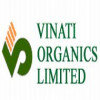
Vinati Organics
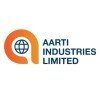
Aarti Industries

Atul
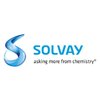
Solvay Specialities
Calculate your in-hand salary
- Home >
- Interviews >
- Privi Organics Interview Questions >
- Privi Organics Processing Executive Interview Questions




